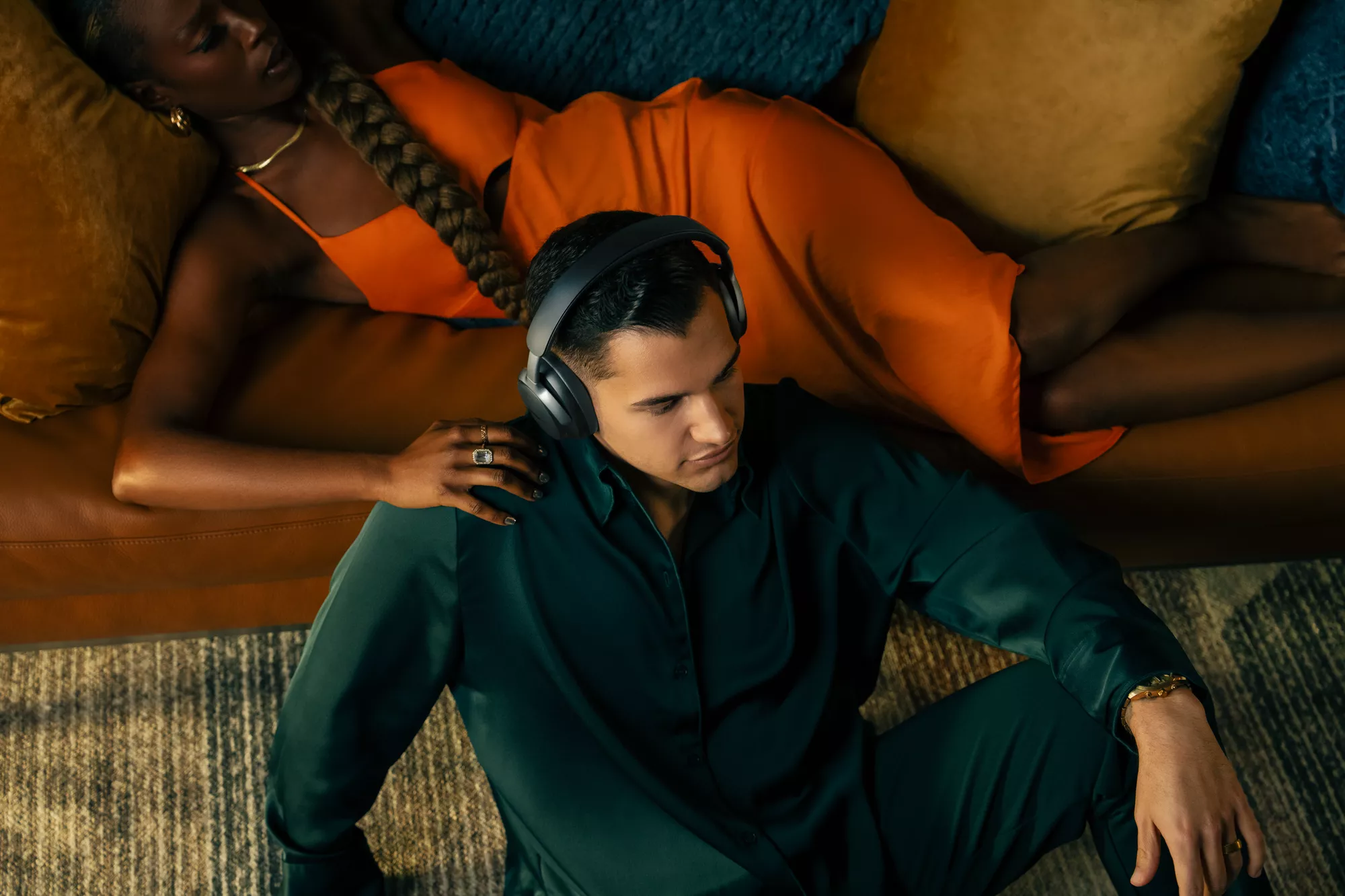Spatial audio is having its well-deserved moment in the spotlight as more media consumers consider it an essential feature for their headphones and home theatres. But what is spatial audio, exactly?
At its core, spatial audio is an upgraded version of surround sound. The innovative technology applies audio filters that simulate how your ears can tell the distance and direction of sound. These filters are applied differently for the various components that make up a piece of content, so spatial audio can simulate the sensation of specific instruments, voices, and other sounds coming from all directions and distances, fully immersing the listener in 3D audio.
It’s poised to be a game changer in the way audio is consumed, and music and media lovers are all in on spatial audio. In fact, a 2022 State of Sound Report by Qualcomm found that 41% of those surveyed would be willing to spend more on wireless earbuds including spatial audio, and that 73% were already familiar with it. The report also found that the main growth areas for this technology were film, music, and gaming, with a growing demand for live sports.
Read on to learn more about the benefits of spatial audio and how you can take your listening experience to the next level.
The benefits of spatial audio
So what is spatial audio all about, and why is it so popular? The obvious benefit of spatial audio is the upgraded sound quality, giving listeners a more lifelike soundstage to maximize their entertainment enjoyment. And our new Bose QuietComfort Ultra Headphones offer Immersive Audio, so you can experience upgraded sound quality for yourself.
That said, there are additional wellness benefits to spatial audio. A Music and Science study found that spatialized audio may be able to reduce stress, because the three-dimensional sound mimics the way we hear music in real life. With inferior sound, the brain has to work harder to fill in those blanks, which can heighten stress levels.
Movie theatres give us an elevated immersive sound experience that is object-based, meaning that sound effects, vocals, and music are assigned to places in a spherical space—to the left, right, or even above you. Headphones, on the other hand, use binaural-based recordings, which are designed to replicate the sound in your ears by using microphones inside the ear canal to imitate real-life hearing and sound during the music capture process.
Spatial audio vs. non-spatial audio
For the best listening experience, you’ll want to invest in high-quality headphones. Specialized headphones aren’t necessary to enjoy spatial audio, as long as your streaming service, phone, or laptop and the media you enjoy are Atmos-enabled. However, to enjoy spatial audio’s dynamic head-tracking capabilities—allowing listeners to walk around or move their head while experiencing the effect movement has on sound—you’ll need upgraded headphones.
Noise cancelling headphones offer a plug-and-play spatial audio experience, with no need for further speakers or fancy equipment; the right pair of headphones will automatically provide the experience once you place them on your head. Lower quality headphones won’t get the job done, as they can distort the spatial audio sound, giving you a poor listening experience.
How to enable spatial audio
Right now, spatial audio isn’t everywhere. Only certain content types support it. So make sure your app, phone, or streaming services are 5.1, 7.1, or Atmos-enabled. Bose has a new fleet of spatial audio products available. This new product comes with Bose TrueSpace technology, an already available feature on the current soundbar model, which upmixes non-Atmos audio to give an experience of height. But when spatial audio is available, it activates automatically—no need to turn it on or off.
Spatial audio in an open space has limitations because so many speakers are needed to distribute the sound effectively. Investing in a Bose soundbar is a great home solution, as its TrueSpace processing upmixes non-Atmos signals, so overhead speakers aren’t needed.
The spatial audio offerings from Bose are groundbreaking because they include head-tracking technology, where the sound changes as you turn your head. This feature, along with noise cancellation, creates a truly unique immersive listening experience.
Spatial audio for on-the-go listening
With the portability and comfort of high-quality headphones and earbuds, you can instantly bring immersive theatre or concert-like sound with you wherever you go. Choose from sleek and comfortable noise cancelling headphones or noise cancelling earbuds to enhance your listening experience. And Bose Bluetooth headphones allow you to connect to your favourite shows and movies on Netflix, Max, Disney+, and other spatial audio–enabled platforms. These portable tools effortlessly eliminate noise from your surrounding environment, so you can fully enjoy everything your spatial audio content offers.
